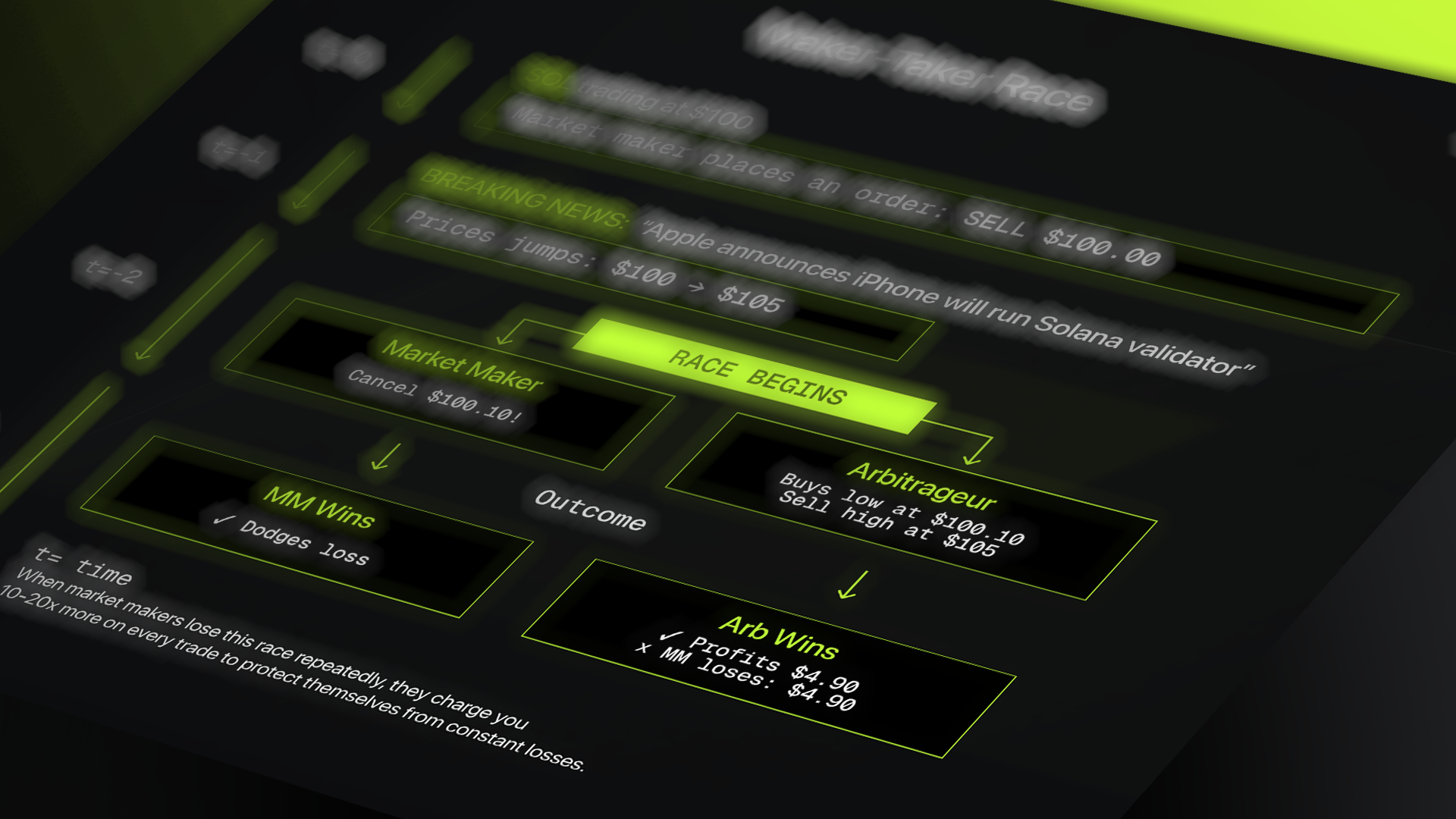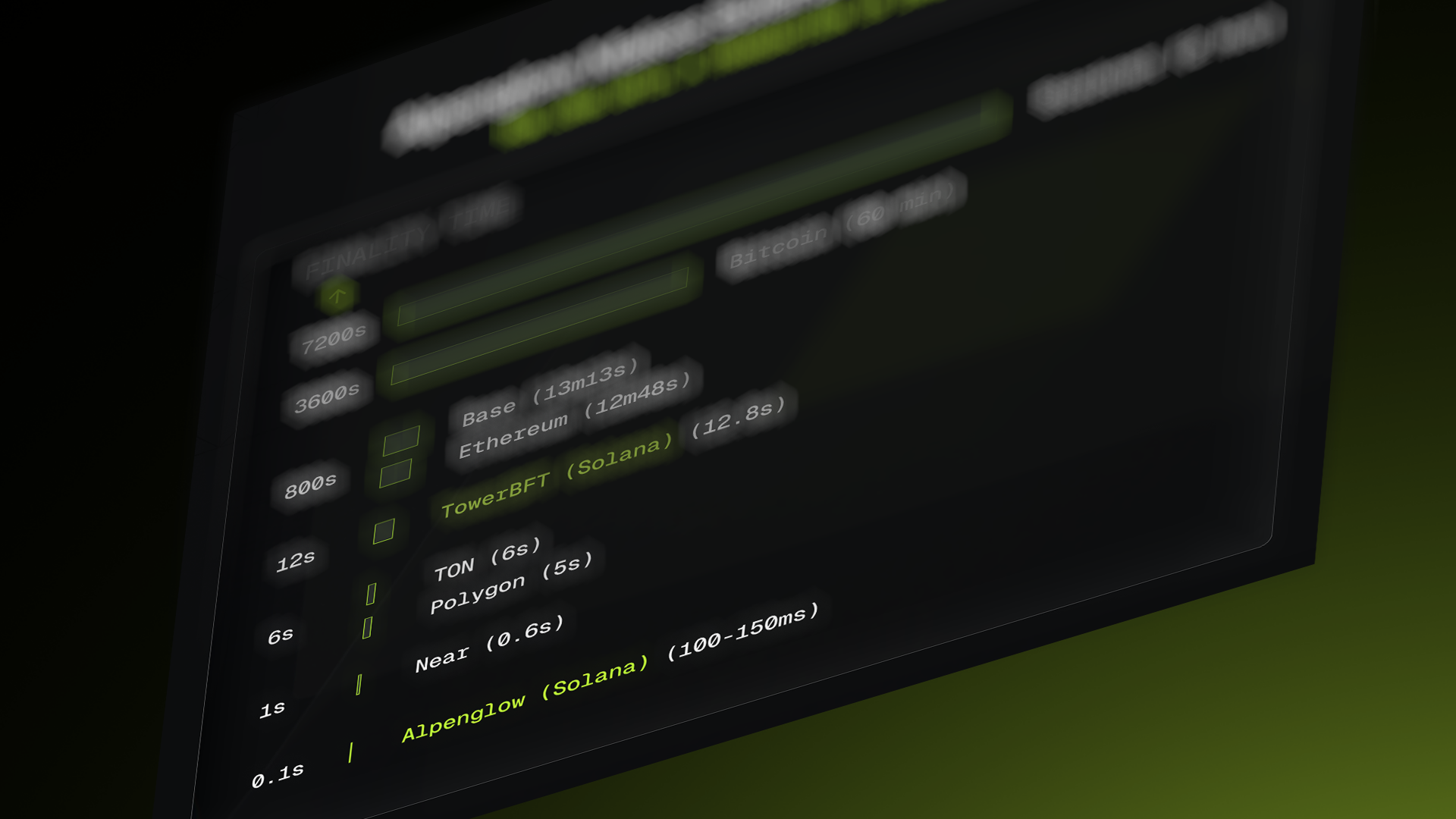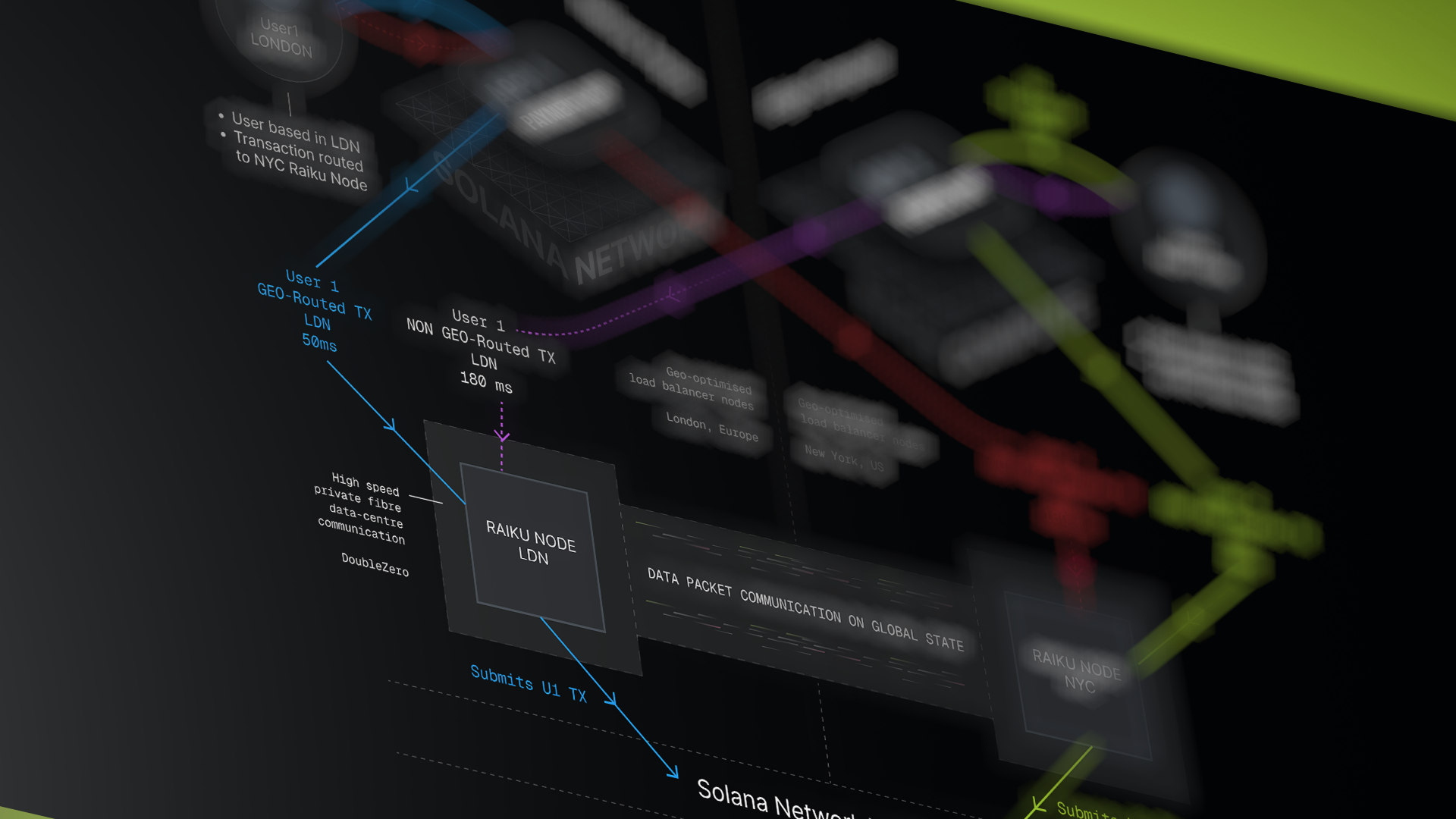AI agents need guarantees: building autonomous systems that actually work
How deterministic execution allows AI agents to operate reliably across distributed systems and real-world applications that become possible with these guarantees.
.png)
AI is eating the internet - and it’s coming for your clicks. If the past thirty years have been defined by increasing screentime and browser navigation, the next few will belong to autonomous AI agents.
But Web 2.0 rails can’t carry what comes next. Autonomous agents are AI systems designed to sense their environment, decide, and act on goals in real time. To live up to their potential, agents need to execute trades, rebalance liquidity, or move assets without waiting on fragile APIs or permissioned servers.
That future only works onchain, where coordination, settlement, and value transfer can happen without a human constantly in the loop.
Analysts forecast AI could unlock over $4 trillion in productivity. That promise breaks down in crypto markets where timing errors, failed inclusions, and MEV extraction erase value as fast as agents create it. To make agentic systems viable onchain, infrastructure has to behave like physics - deterministic, predictable, guaranteed.
That’s where Raiku comes in.
In this piece, we get into how AI agents can operate reliably across distributed systems, the infrastructure challenges they face, and real-world applications that become possible with deterministic execution guarantees.
The Coordination Problem for Onchain Agents
The promise of 24/7 agents running the internet is highly compelling. Unlike humans, AI agents don’t need to sleep, eat or touch grass. But they also can’t exercise the art of patience. So, whereas a human user might navigate a failed transaction by waiting it out or creatively adapting to delays, AI agents collapse.
In other words, once you assign agents capital, compute, or supply chain decisions, they need absolute precision to keep multi-step workflows intact.
That’s where today’s blockchains fall short. They were built for human clicks, not autonomous actors. And when agents try to operate on them, cracks appear fast:
- Unpredictable transaction timing leaves agents unable to synchronize multi-step operations. A cross-chain arbitrage agent might line up the perfect trade only to lose it because the final leg in your carefully laid out multi-step flow landed seconds late.
- Failed transactions break autonomous workflows. Without guaranteed inclusion, agents are forced into costly retry loops or abandon the task entirely. In the face of such uncertainty, it becomes a challenge to build autonomous systems you can rely on at all.
- No coordination guarantees mean agents cannot depend on sequential execution. So, if an AI agent managing a liquidity pool needs to rebalance positions at specific intervals, unpredictable inclusion times can throw off your whole portfolio strategy.
In high-stakes environments like trading, it only takes a few milliseconds to erase profits and destroy trust. In this context, deterministic coordination becomes the backbone that enables autonomous systems to operate reliably and at scale.
How Raiku Enables Autonomous AI Coordination
Raiku's infrastructure addresses these coordination challenges through guaranteed transaction inclusion and deterministic timing. This reliability transforms what's possible for AI agent networks.
Pre-confirmations provide execution certainty. AI agents can reserve execution slots up to 60 seconds in advance, allowing them to coordinate complex multi-step operations with guaranteed timing. An agent orchestrating federated AI training can schedule bandwidth allocation precisely when needed.
Slot reservations enable sequential coordination. Agents can book specific future slots for scheduled operations, ensuring that critical tasks like oracle updates or liquidations execute exactly when required. This predictability is essential for agents managing time-sensitive financial positions.
Guaranteed inclusion eliminates retry logic. Instead of building complex error handling for failed transactions, AI agents can focus on their core logic, knowing their operations will execute as intended.
Real-World AI Agent Applications
With reliable execution guarantees, entirely new categories of AI applications become viable on blockchain networks.
Enterprise AI Model Marketplaces allow organizations to monetize AI models while protecting intellectual property. Raiku's encrypted execution environments enable model creators to provide inference services without exposing their algorithms, while microsecond timing guarantees ensure real-time AI applications perform reliably.
Federated AI Training Infrastructure coordinates encrypted machine learning across multiple organizations. AI agents can manage gradient aggregation with guaranteed bandwidth reservation and privacy preservation, enabling enterprise collaboration on model training while maintaining data sovereignty.
Autonomous Trading Strategies execute machine learning models with deterministic settlement and front-running protection. AI agents can implement sophisticated quantitative strategies that require precise timing, competing effectively with traditional high-frequency trading systems.
Cross-Domain AI Coordination enables AI systems to operate across different industries with guaranteed timing and privacy preservation. An AI agent could coordinate supply chain logistics, financial settlements, and regulatory compliance across organizational boundaries.
Building Reliable AI Infrastructure
The shift toward autonomous AI agents represents a fundamental change in how we think about blockchain applications. Instead of building for human users who can adapt to network uncertainty, we need infrastructure designed for autonomous systems that require predictable execution environments.
Raiku provides the foundation for this transition through deterministic transaction inclusion, slot reservations, and privacy-preserving execution. AI agents built on this infrastructure can operate with the precision required for enterprise applications, opening new possibilities for autonomous coordination across industries.
The future of blockchain isn't just about faster transactions or lower fees—it's about creating environments where autonomous systems can operate reliably at scale. AI agents represent the next evolution of blockchain applications, but they need infrastructure designed for their unique requirements.
As AI continues to permeate business operations, the organizations that can deploy autonomous agents with guaranteed execution will have significant competitive advantages. Raiku makes this reliability possible, enabling a new generation of AI-powered applications that can operate autonomously in production environments.



